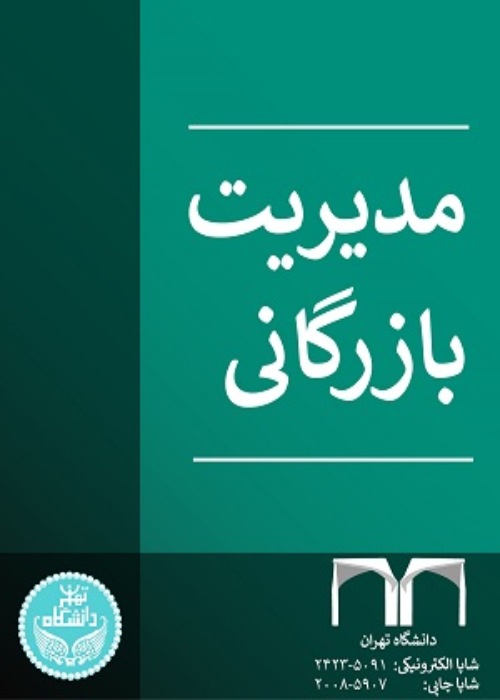Identifying the Mental Models of Managers of Food Industry Companies Regarding Barriers to Export Development (Case Study: Managers of Dairy Product Companies)
This study aims to integrate the two areas of study, namely mental models and perceived barriers to export. Based on the theory of mental models, the present study seeks to increase the richness of the perception of the experiences and perceived meanings of managers of Iranian dairy product companies on the barriers to export development. On the other hand, identifying managers’ mental model and determining the most important barriers to export in each mental model can be considered a guideline for export policymakers to plan according to the existing mental models and provide solutions for export development.
This research is applied in terms of purpose and descriptive in terms of data collection. The statistical population of this research includes chief executives in business, sales and export departments of dairy product companies. Semi-structured interviews based on phenomenological approaches and projective techniques have been used to collect data. Using the theoretical sampling method, chief managers of twelve dairy product companies were the interviewed in order to reach saturation. To ensure data validity and reliability, revie participants’ reviews and multidisciplinary approaches were used through interviews with different groups of participants. Theme analysis and Maxqda 10 software were used to analyze the data.
The ultimate model of the study included the following six mental models of barriers to export: 1) market-oriented model: this mental model is made up of the sub-themes of "not being brand-centered", "poor marketing status" and "lack of competitive advantage". This mental model has been the most prevalent mental model among the managers; 2) government-oriented model: this mental model is made up of the sub-themes of "poor governmental support", "poor governmental policymaking " and "poor governmental interaction "; 3) resource-oriented model: this mental model consists of four sub-themes of "poor company updating", "production capability", "financing problem" and "lack of government lobbies"; 4) profit-oriented model: this mental model consists of three sub-themes of "profit-oriented attitude", "lack of global export prospects", and "undesirable image of the country"; 5) infrastructure oriented model: this mental model is made up of the sub-themes of "economic instability", "poor transport infrastructure" and "country backwardness"; and 6) institutional-oriented model: this mental model focuses on companies’ conflict with Iranian organizations in the process of export and includes two sub-themes of "administrative complexities of the export process", and "tax burden and customs tariffs".
Given the importance of the role of mental models and managerial perceptions in decision making, including decisions about the company’s export activities, one must first identify the managers’ mental model of export in order to have a proper understanding and analysis of export behaviors. In terms of frequency, market-oriented, government-oriented, and resource-oriented mental models were identified as the three leading mental models in dairy product companies, respectively. According to the managers participating in this study, Iranian dairy products do not have a competitive advantage in inter-regional markets in terms of quality, price, product variety, and packaging. Although changing the attitudes of managers and investors is necessary to expand the company’s export activities, it is not enough to help grow and develop the export of dairy products in international markets. The government-oriented mental model, identified as the second dominant mindset in dairy product companies, highlights the important role of government policy making and support in creating or removing export barriers. In this mental model, the government must provide an appropriate platform for export development.
- حق عضویت دریافتی صرف حمایت از نشریات عضو و نگهداری، تکمیل و توسعه مگیران میشود.
- پرداخت حق اشتراک و دانلود مقالات اجازه بازنشر آن در سایر رسانههای چاپی و دیجیتال را به کاربر نمیدهد.



